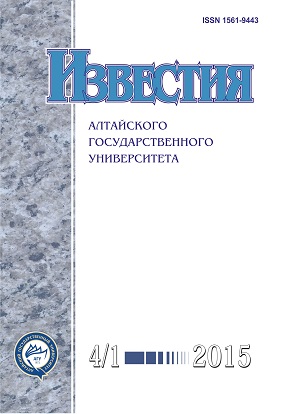The Introduction of Institution of Peasant Chiefs in the Steppe Region at the Beginning of the XXth Century and the Peculiarities of its Activity
Abstract
The article analyzes the reforms of the management system the Steppe Region in early XXth century aimed at establishing in the steppe region the post of the peasant chief similar to those existing in the Siberian provinces of the Russian Empire. The institution of peasant chiefs in the Steppe region was directed at improving the management of the peasant and the Kazakh population in the region and integration of steppe regions into Russian Empire space. Peasant chiefs were supposed to monitor the collection of fees and the execution of duties by the local population, to collect the arrears, serve as a judge, to perform the duties of the police, be responsible for conducting sanitary and fire-prevention measures, etc. Several years after the establishment of the post activity, peasant chiefs were criticized by both the local population and the administration of the Steppe general-governorship. Peasant chiefs did not fulfill their duties, were not always consistent with their powers, and abused their power. There are objective factors that prevented the peasant chiefs from effectively performing their duties. These were, above all, huge territory under their jurisdiction areas, as well as the lack of coordination between the peasant chiefs and district authorities.
DOI 10.14258/izvasu(2015)4.1-02
Downloads
Metrics
References
Традиционное казахское общество в национальной политике Российской империи: концептуальные основы и механизмы реализации (XIX - начало XX в.) : монография / Ю.А. Лысенко, И.В. Анисимова, Е.В. Тарасова, М.В. Стурова. - Барнаул, 2014.
Гермизеева В.В. Крестьянские начальники Западной Сибири: численность и состав (1898-1917 гг.) // Современные проблемы науки и образования. - 2014. - № 4.
Дамешек Л.М., Оглезнева Г.В. Крестьянские начальники Иркутской губернии (1898-1917) // Политика самодержавия в Сибири XIX - начала XX в. - Иркутск, 1988.
Дамешек Л.М. Закон 1898 г. о крестьянских начальниках в советской исторической литературе // Актуальные проблемы истории Восточной Сибири. - Иркутск, 1983.
Крафт И.И. Судебная часть в Туркестанском крае и степных областях. Оренбург, 1898.
Ганибаева Ж.А. Образование института крестьянских начальников в Степном крае в начале ХХ в. // Столица и провинции: взаимоотношения центра и регионов в истории России : материалы Всерос. науч. конф. с меж-дунар. участием / отв. ред. В.В. Карпова. - Вып. 5. - СПб., 2014.
Центральный государственный архив Республики Казахстан (ЦГА РК). - Ф. 64. - Оп. 1. - Д. 2241.
ЦГА РК. - Ф. 64. - Оп. 1. - Д. 2322.
Izvestiya of Altai State University is a golden publisher, as we allow self-archiving, but most importantly we are fully transparent about your rights.
Authors may present and discuss their findings ahead of publication: at biological or scientific conferences, on preprint servers, in public databases, and in blogs, wikis, tweets, and other informal communication channels.
Izvestiya of Altai State University allows authors to deposit manuscripts (currently under review or those for intended submission to Izvestiya of Altai State University) in non-commercial, pre-print servers such as ArXiv.
Authors who publish with this journal agree to the following terms:
- Authors retain copyright and grant the journal right of first publication with the work simultaneously licensed under a Creative Commons Attribution License (CC BY 4.0) that allows others to share the work with an acknowledgement of the work's authorship and initial publication in this journal.
- Authors are able to enter into separate, additional contractual arrangements for the non-exclusive distribution of the journal's published version of the work (e.g., post it to an institutional repository or publish it in a book), with an acknowledgement of its initial publication in this journal.
- Authors are permitted and encouraged to post their work online (e.g., in institutional repositories or on their website) prior to and during the submission process, as it can lead to productive exchanges, as well as earlier and greater citation of published work (See The Effect of Open Access).








